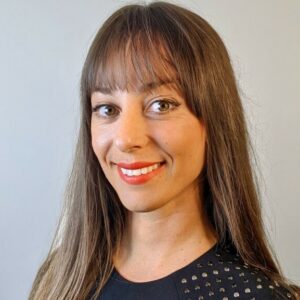Marija Čolić
Assistant Professor

If you are passionate about working with children and are ready to learn, our department will help you in achieving your goals through mentoring and continuous feedback.
Hometown
Kragujevac, Serbia
Department
Special Education
Dr. Marija Čolić was awarded the 2021 Diversity in Research award from the International Society for Autism Research (INSAR). Formed in 2001, INSAR is an international professional and scientific organization devoted to advancing knowledge about autism. Read the news release.
What is your philosophy of teaching?
As an instructor in the Department of Special Education’s ABA program, my aim is to motivate students to become effective and ethical teachers and BCBAs who, in the future, will contribute significantly to the growth of students with disabilities. One of the critical aspects of my instructional philosophy is to create an interactive and nutritive learning environment in the classroom, where students know that I am invested in their academic advancement and they can ask me questions freely. Also, I believe that it is important to build relationships and trust with the students so they can always feel free to ask for my support. This is especially important for online courses where face-to-face contact is limited, so I always strive to create multiple opportunities for discussion, building rapport, and trust during class.
What types of candidates do you hope/recommend to pursue our BCBA-Track programs?
Candidates who are passionate about helping children and adults with disabilities and their families. It is important to remember that parents trust us with their children, with their greatest treasure and therefore it is our responsibility to continuously learn so we can support them and give them the best chances for success. If you are passionate about working with children and are ready to learn, our department will help you in achieving your goals through mentoring and continuous feedback.
Briefly describe your own road to higher education.
As a high school student I was very interested in psychology and diversity in thinking and I had been always analyzing behaviors and thoughts. I was interested primarily in getting a degree in psychiatry as I wanted to understand diverse people better. But medicine was not my passion and I decided to enroll in a special education program so I can work with people with autism and intellectual disabilities. Fun fact is that in Serbia you have to choose a major from day one and as a student you focus extensively on that one discipline. Thus I had been studying multiple aspects in the field of disability for 5 years, such as genetics, neuropsychology, special education, different interventions, assessments, numerous theories about disabilities. But my passion for psychology had never stopped and I decided to enroll in a psychology program and for 5 years I was studying psychology, focusing mainly on social psychology and research. Combining these two learning paths and disciplines gave me a very wide perspective on understanding people with disabilities and their families. Naturally, my PhD combined these two approaches and I mainly specialized in autism and social aspects surrounding autism. So, where is ABA in all of these? I obtained my BCBA when I came to the United States and started working as a behavioral specialist in New York State. I feel that by getting more extensive knowledge on behaviorism and ABA I was finally able to complete a circle of my thoughts starting back in high school.
What are your research interests?
Stigma in people with autism, developmental disabilities and their caregivers and parental experiences of children with autism (such as with services, diagnosis, etc.).
What do you like to do outside of education?
Surfing and my goal is to learn to ride a short board.
